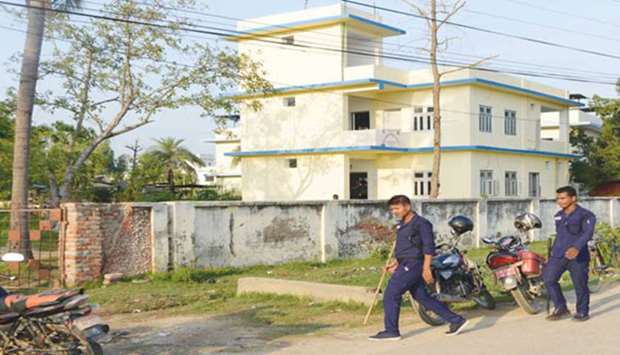Chandra Kumar was in the water supply office when suddenly the explosives he was carrying exploded, fatally injuring him.
Kumar was rushed to Seti Zonal Hospital where he breathed his last while undergoing
treatment, police said.
The incident occurred on the eve of the second round of local-level elections which is taking place in 334 local units in 35 districts of provinces number 1, 5 and 7.
Meanwhile, an improvised explosive device exploded in the house of Prem Bhandari, ward candidate of Bhojpur Municipality-4, representing Nepali Congress.
According to Kaji Kumar Acharya, deputy superintendent of police of Bhojpur, the bomb went off yesterday.
In another incident, a bomb disposal team of the army defused an improvised explosive device planted near the house of Nepali Congress candidate for the post of mayor of Tulasipur in Dang district in western Nepal, on Monday.
Security has been tightened in all the polling centres and voting stations in the district.
Nepal last month began holding its first local elections in 20 years, a key stage in the country’s post-war transformation from feudal monarchy to federal democracy.
Today, voting is due to take place in the southern plains, home to the country’s Madhesi ethnic minority, who demonstrated in huge numbers two years ago to protest new federal borders they say will leave them politically marginalised.
The Rastriya Janata Party-Nepal (RPJ-N), the main party representing the Madhesi community, has already said it will boycott the polls, raising doubts about their legitimacy and fears of a resurgence in the violence.
More than 50 people died in the months-long protests, most of them shot when police fired into crowds of demonstrators – a response condemned by rights campaigners.
Analysts say the government’s failure to address the grievances of the community, which makes up around 20% of Nepal’s population, could be holding back the country’s progress.
Parties representing the Madhesi have already forced several postponements of the local elections, which are supposed to pave the way for provincial polls and then national elections by January, when the mandate of the current parliament expires.
The government recently postponed the polls in the voting area that includes Janakpur – seen as a potential flashpoint – until September following
local protests.
“The unaddressed agendas of the Madhes are in a way holding the country hostage, keeping it from smoothly completing its democratic processes,” said lawyer and Madhesi activist Dipendra Jha.
The Madhesis, who live in Nepal’s populous southern lowlands known as the Terai and share close linguistic and cultural ties with India, have long complained that the existing federal borders deprive them of fair political representation.
Many were denied citizenship, rendering them stateless, until a 2006 law that allowed non-Nepali speakers born and raised in the country to become naturalised citizens.

